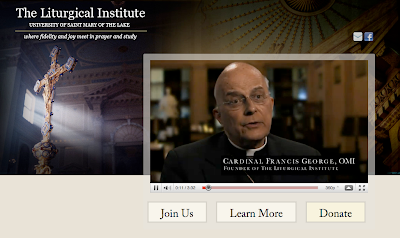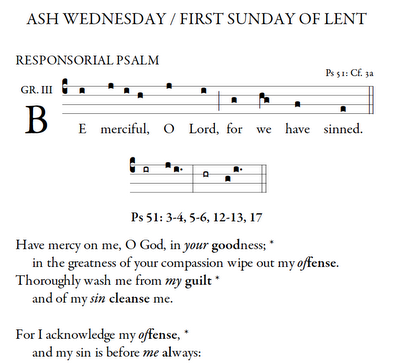 St. Basil’s School of Gregorian Chant is holding its 2011 Winter Chant Workshop next week from March 2nd to March 5th at the University of St. Thomas in Houston, Texas.
St. Basil’s School of Gregorian Chant is holding its 2011 Winter Chant Workshop next week from March 2nd to March 5th at the University of St. Thomas in Houston, Texas.
The workshop will feature guest conductor and instructor Fr. Columba Kelly, OSB of St. Meinrad Archabbey.
Sessions will cover topics ranging from musical settings of the new translation of the Roman Missal, the principles of Gregorian Semiology, and singing chant in Latin and English.
For more information see the St. Basil’s website.
Below are the weekly schedule and curriculum. They look to be packed to the brim!
WEDNESDAY:
EVENING ADDRESS:
Fr. Columba Kelly, OSB: “Chant as the foundation of modern music, and foundation of all composition of Liturgical Music”.
THURSDAY:
MORNING SESSION 1:
The ancient oral origins of chant, its rhythm and dynamic structure. the liturgy prayed and sung. Missa Primitiva, Kyrie, the psalms of compline.
MORNING SESSION 2:
Semiology discovered: The restoration of Gregorian Chant by Solemnes. The foundations of singing chant. The Missa Primitiva, Sanctus, The “Ave Regina Coelorum”, Compline psalms.
AFTERNOON SESSION: 3
A Master Chant Class including University students and faculty. Historical development of chant, rediscovery of semiology. Sample schola performance. “Puer natus est” Introit from Christmas Day. “Dixit Domiuns”, communion from Feast of Cana.
AFTERNOON SESSION: 4
Semiology of the Proper: Rorate Coeli (of Advent), Pueri, Haebraeorum (of Lent), “The Marian Hymn “Ave Regina Coelorum”.
ST. BASIL’S CHAPEL: Benedictine Compline
FRIDAY:
MORNING SESSION: 1
The ancient structured “cantillation” of Chant. Discovering the foundation of today’s, chant melodies and psalms. Missa primitiva, Agnus Dei, Vespers Psalms, the great “Magnificat”, the melismatic “Alleluias”
MORNING SESSION: 2
Ancient “cantillation” continued: Missa primitive, Agnus Dei, The “O” Antiphons of Advent, Salve Regina, Vespers Psalms.
AFTERNOON SESSION: 3
The melismatic level of Chant, “Rorate Coeli” of Advent, “Puer Natus” of Christmas: Semiology of the hymn, “Veni Creator Spritus”, Vespers “Magnificat”
AFTERNOON SESSION: 4
Chant today as the sung prayer of the Church and the Liturgy sung: Vespers Psalms, Semiology of “Alma Redemptoris Mater” Vespers “Magnificat”
Vespers: 13th Century Menil Byzantine Fresco Chapel.
SATURDAY:
MORNING SESSION: 1
Melisma of “Alleluias”: Alleluias 1 & 2: Marian Hymns: Advent “Alma Redemptoris Mater”, Paschal “Regina Coeli” , “Conditor Alme Siderum”, “Veni Creator Spritus”.
MORNING SESSION: 2
New English Chant of the Roman Missal: Alternate Chant of St. Meinrad., “Ubi Caritas” of Holy Thursday, Lenten Marian Hymn: “Ave Regina Coelorum”.
AFTERNOON SESSION: 3
Preparation of Chants, Mass parts for the Solemn Vigil. Missa Primitiva, “Conditor Alme Siderum”, “Ave, Regina Coelorum”, Gospel “Alleluia”.
AFTERNOON SESSION: 4
Chants of the new English Roman Missal. Alternate chants of St. Meinrad.
4:15: Break for preparation of Liturgy:
Schola Cantorum Chapel rehearsal
4:45 pm: Assemble for Missa Solemnis






